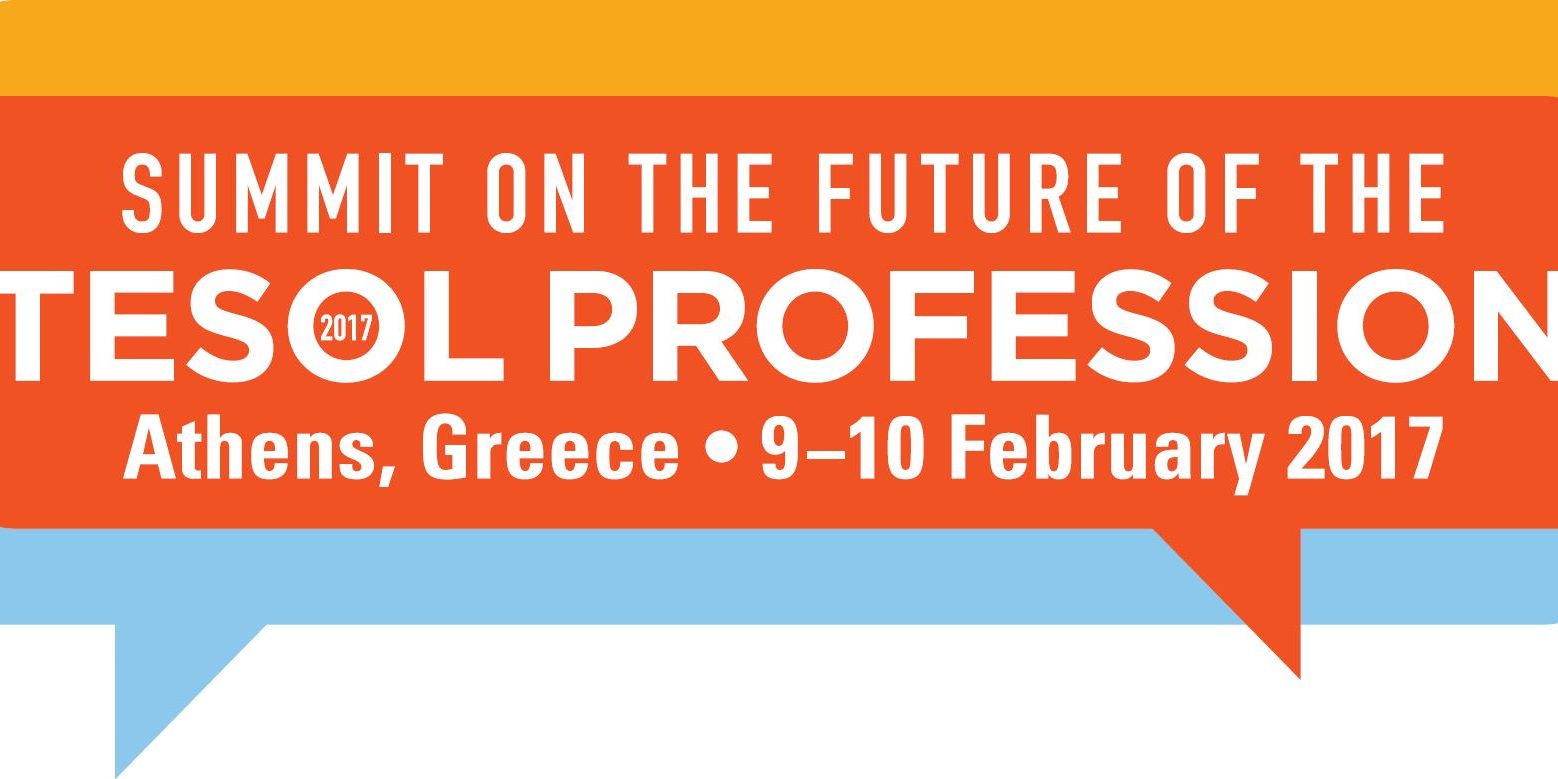by Deborah J. Osborne
ATHENS, 2017- We met in the cradle of Western civilization: 200 delegates from 64 countries- teachers, teacher trainers, NGO managers and employees, government officials, RELOs from the State Department, representatives from the British Council, TESOL (national and regional), IATEFL, and CEA, IEP administrators, and publishers’ reps. Together we listened, discussed, asked questions, and exchanged ideas about the future of our profession. The Summit had four themes: Futurology, English in Multilingualism, Reimagining English Competence, and the Profession as a Change Agent.
This first article will present a brief summary of what was discussed about Futurology and English in Multilingualism with a second article addressing Reimagining English Competence and the Profession as a Change Agent.
Futurology
- Inquiry: Sue Garton, Reader in Applied Linguistics/TESOL at Aston University, U.K., pointed out the current disconnect in lines of communication between researchers, teachers, and publishers/testing organizations, etc. in the field. She advocated for a new approach to inquiry which better connects the needs and the knowledge of teacher-practitioners with the activities and foci of researchers.
- Professionalism: Greg Kessler, Director of the Language Resource Center and Associate Professor of CALL at Ohio University, spoke of the immense and growing influence of social media in the world. He encouraged teachers and other professionals in the field to get involved; not only to effect change on the way we deliver teaching materials and design learning spaces, but also to represent and advocate for ourselves and our students.
- Equity: Asmaa Abu Mezied, a research fellow at Internet2, delivered an impassioned and eloquent address on the challenge of meeting the educational needs of the world’s many displaced, and those living in conflict areas. She said that it is essential to realize that not only people’s immediate, basic needs must be met- food, water, shelter- but also more long-term ones, such as education (including English), to ensure not only survival, but to provide a viable future.
English in Multilingualism
- Inquiry: Li Wei, Chair of Applied Linguistics and Director of the UCL Centre for Applied Linguistics at University College London, U.K., began his talk by posing the question: what is the goal of learning a language- to become monolingual in that language? Of course it isn’t, but in emphasizing “English only”, we sidestep the fact that we are producing multilinguals, who can use their knowledge of their own or their other languages to enhance the learning process. Dr. Li introduced the term “translanguaging” to describe the use, and the encouragement of the use, of more than just English in the TESOL classroom.
- Professionalism: Robinah Kyeyune works in early childhood education with RTI International in Uganda. In her program students learn literacy skills first in their local language, and then transition to English. Her message to TESOL professionals was that we should and must be deeply involved in curriculum development….And work with government agencies to ensure sound educational and pedagogical policies, as well as funding.
- Equity: Joseph Lo Bianco, a professor of language and literacy at the University of Melbourne, Australia, pointed out that teachers are in the front line of language planning: they are the ones who observe that the too-early introduction of English, for instance, can have negative effects upon children’s literacy development. TESOL practitioners should be aware of the different roles languages play in society – English should not be emphasized to the detriment of native languages.
While it’s safe to say that we haven’t solved the challenges facing our profession, the first Summit began the conversation and aired many areas of concern, as well as possible strategies and actions to address them.
Editor’s Note: Recorded sessions from the TESOL Summit are available at http://www.tesol.org/summit-2017/themes. The conclusion of Osborne’s report will be our next Weekly Feature.
Deborah Osborne completed her Ph.D. in Linguistics at Simon Fraser University, Vancouver, Canada. She has taught Linguistics, ESL, and English composition in Canada, Papua New Guinea, Hawai’i, Iowa, Missouri, and Oklahoma. She is active in TESOL and NAFSA, and is a trained and experienced CEA reviewer. Currently she serves as Director of the Applied English Center at the University of Kansas.








